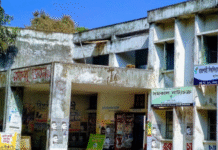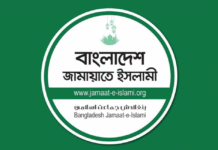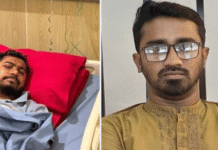The Cabinet on Monday approved the draft of the ‘Voter List (2nd amendment) Bill, 2013’ with a provision for not including in and dropping from the voter list the names of those convicted under the Bangladesh Collaborators Special Tribunal Order, 1972 and International Crimes Tribunal Act 1973.
The approval came from the regular weekly meeting of the Cabinet held at Bangladesh Secretariat today with Prime Minister Sheikh Hasina in the chair.
Briefing reporters after the meeting, Cabinet Secretary M Musharraf Hossain Bhuiyan said any person convicted under the laws, s/he would not be enlisted in voter list. He also said the names of the convicted persons under the two laws would also be excluded from the voter list.
He said the Cabinet also gave nod to the draft of the ‘National Identification Registration (amendment) Bill, 2013 keeping provision for fine and imprisonment as well as providing national ID cards to those below 18 years of age.
Under the proposed amendment, the Cabinet Secretary said the Election Commission would be able to provide national ID cards to Bangladeshi citizens below 18 years of age apart from making the re-registration process more citizen friendly.
He said if anyone violates the secrecy, the proposed amendment kept provision of maximum five years of jail or Tk 50,000 as fine or both. The punishment is also the same against any official and employee of the Election Commission subject to breach of the secrecy.
Musharraf, however said if anyone applies to the Election Commission for any information, the Commission may provide the information if it feels it rational.
The meeting also approved in principle the draft of the ‘National Trust for Rights and Protection of Persons with Neuro Developmental Disabilities Bill, 2013’ in a bid to ensure the rights and welfare of autistics.
The proposed law highlighted the issues relating to providing assistance to the autistics, their nurture, security and rehabilitation.
The Cabinet Secretary said under the law, there will be an Advisory Council, headed by the Prime Minister. Besides, there will be a Trustee Board comprising experts and other stakeholders headed by an eminent person.
The Trustee Board will mainly look after the enforcement of the law and it can also provide registration to the organisations interested to work on autism.
Ministers, advisers to the Prime Minister, State Ministers and Secretaries concerned attended the meeting.
Source: UNBConnect










